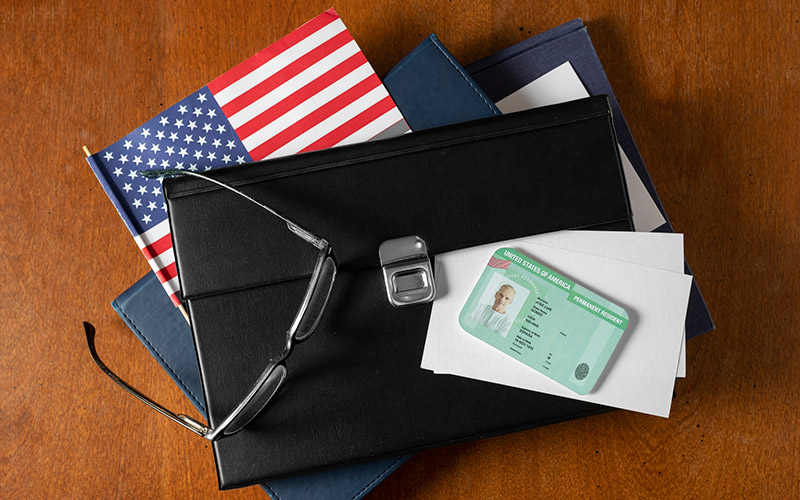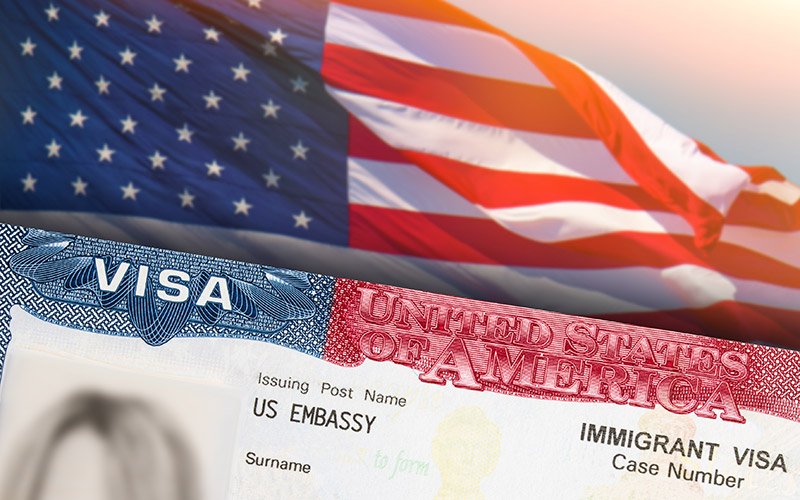Are you aware that you need to disclose your bank balance to apply for a US visa? Let’s see what financial requirements you need to present.
One of the biggest concerns for most applicants is the bank balance for US visa approval. How much money do you really need in your account? Can you still qualify with a modest balance? And what happens if the consulate feels your financial proof is weak? It does not mean that the Consulate Officer can straight away deny if your account has less money or accept it if you have a big bank balance. Let’s clear up the confusion and break down everything you need to know about the bank statement for US visa requirements.
Why Bank Balance Matters for a US Visa Application
When you apply for a US B1/B2 visa, officers check whether you have sufficient funds to plan the trip, the consistency of your finances, and ties to your home country. They have to see your intention behind the trip, and you aren’t deciding to permanently stay in the country you are visiting.
⊛ Financial Proof as a Visa Requirement
The US consulate doesn’t have a fixed amount that you must show. However, they expect you to prove that you can cover your trip expenses without relying on unauthorized work in the US. This includes flight rates, accommodation, food, travel insurance, exploration, and even shopping.
⊛ How the US Consulate Evaluates Your Finances
Visa officers don’t just glance at your closing balance. They study your bank statement for US visa closely: Are deposits regular or suspiciously last-minute? Does your income match the kind of trip you’re planning? Are you funding your own trip or relying on a sponsor? They connect the dots.
- They check whether your income marries your travel plans. In case you have a modest salary and are going for a luxurious trip, it may raise red flags.
- They go into your bank statement history, not only the final balance. So, this means steady and consistent deposits have the upper hand over sudden large ones.
- They also verify whether your funds are self-earned or sponsored, and this would require proof if someone else is paying for your trip.
- They dig into your expenses to align with your purpose of travel, be it leisure, joining a university, or attending work.
- They weigh up whether you have financial ties to your home country, which makes it possible you’ll return.
Minimum Bank Balance Requirements by Visa Type
There isn’t one ideal number, but suggested balances can differ depending on whether you’re traveling for tourism, business, or studies.
⚙︎ Suggested Amount for Short Trips (7–15 days)
With no official rule, here’s a safe guideline to understand what a good balance looks like:
- 2-week trip – ₹2.5–4 lakhs (AED 11,000 – 17,600)
- 1-month trip – ₹5–9 lakhs (AED 22,000 – 39,600)
- 3-month trip – ₹10 lakhs+ (AED 44,000+)
For student visas (F1), the amount depends on the I-20 form issued by your university. Usually, you will be asked to show at least the first year’s tuition and living expenses. This comes with the proof that you can go on with funding future years without becoming a burden for the state.
⚙︎ Factors That Influence the Required Balance
- Duration of stay – Longer stays mean more amount of money.
- City of travel – Metropolises like New York or LA will cost more than a small town or the countryside.
- Accommodation type – Booking a room in a hotel vs. staying with relatives makes a big difference.
- Number of travelers – Families must show combined financials.
- Purpose of visit – Tourism, studies, or business travel all have different costs.
Documents to Show Proof of Bank Balance for US Visa
For the numbers to be authentic, you will have to present the documents to the officers. Here are the documents to show a minimum bank balance for a US visit visa:
⚙︎ Bank Statements (Last 6 Months)
Get original bank statements for the last 6 months. What raises doubts amongst the visa officers is not having a healthy, consistent balance. When you just try to show off the money in your account with a lump sum deposit at the nick of time, the move does not work. It can make your finances more skeptical.
⚙︎ Fixed Deposits, Tax Returns, and Other Assets
Although the bank statement could be the sole provider of your financial soundness, some other documents are worth including to avoid any chances of rejection. Here are a few documents that you must serve.
- IT returns for the last 2–3 years
- Salary slips or an employer certificate
- Fixed deposits and mutual funds
- Property ownership documents
Tips to Avoid Visa Rejection Due to Insufficient Funds
Many U.S. visa applicants are denied not because they lack money, but because their financial presentation looks weak or suspicious. Here are some expert-approved tips to avoid such situations:
➣ Joint Accounts and Family Sponsorship
If you’re traveling with family, you can go ahead with the joint account details. If someone else is sponsoring your trip, they must provide Form I-134 (Affidavit of Support) with their financial documents.
➣ Avoiding Fake or Inflated Bank Documents
Now this is a no-brainer: never submit fake statements. This might look like a faster means of getting the visa, but it can easily be exposed. Be true to how your finances are churned out; otherwise, such fraud can lead to US visa rejection, or sometimes to serious retributions like a permanent ban.
Alternative Financial Documents You Can Submit
There might be cases where you don’t have huge liquid funds. You can still cement your case with the following documents:
- Education loans for student visas
- Sponsor letters from parents, relatives, or employers
- Scholarship or grant documents
- Pension statements for retirees
Tips to Get a US Visa Application on the First Go
A strong visa application isn’t just about the balance; it’s about consistency and credibility.
- Repeating again: Keep your bank balance for US visa uniform, especially throughout a certain period that the officer checks.
- Put together a complete financial file with statements, ITR, salary slips, and investments.
- Be confident and ready to explain all the funds during the interview. The only trick that works here is to be honest with all your proofs.
- Always arrange your finances with your travel plans.
FAQs About Minimum Bank Balance Required for US Visa
1. Is there a fixed minimum bank balance for a US tourist visa?
2. Do I need to show a bank balance for a US student visa separately from tuition fees?
3. Can I use my parents’ bank account for proof?
4. Will sudden deposits affect my visa chances?
5. Can fixed deposits be used as proof of funds?
6. Do I need original bank statements, or can printouts be fine?
7. Can I get a visa with a low bank balance?
8. Do credit cards count as proof of funds?
9. Will the embassy check my balance after the interview?
10. Can I show joint accounts with my spouse?
11. Is travel insurance mandatory for US visa approval?
12. How many months of bank statements are required?
13. Do property documents help in getting a visa?
14. Can I use an education loan letter for student visa proof?
15. Will showing too much balance raise suspicion?
Conclusion
So, the next time you wonder how much minimum bank balance for US visa is required, remember: It’s not about a magic number; it’s about proving you can afford your stay and will return home.


